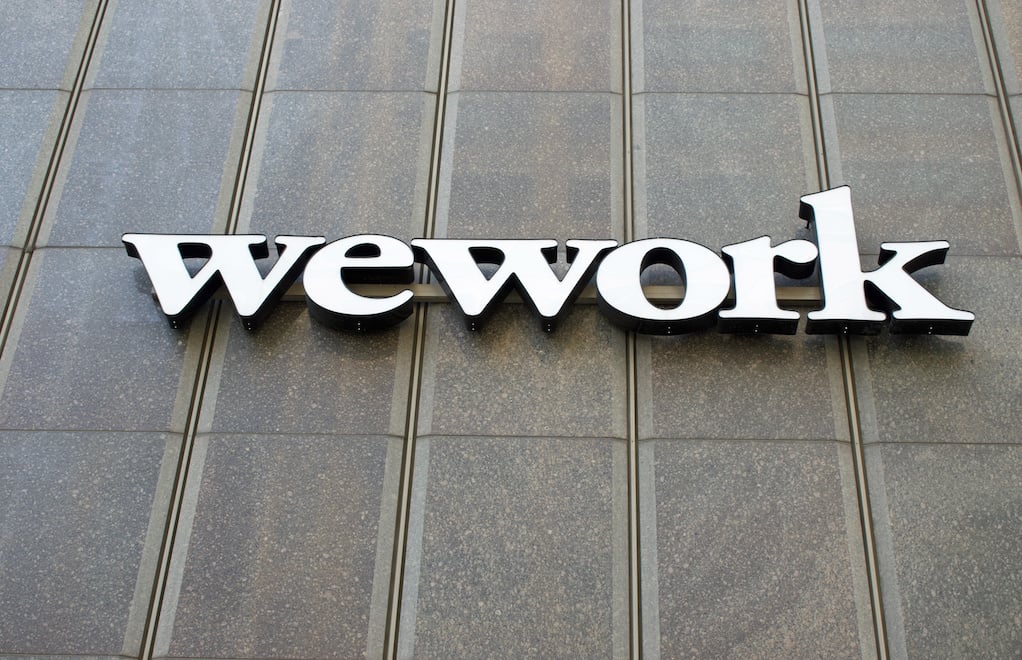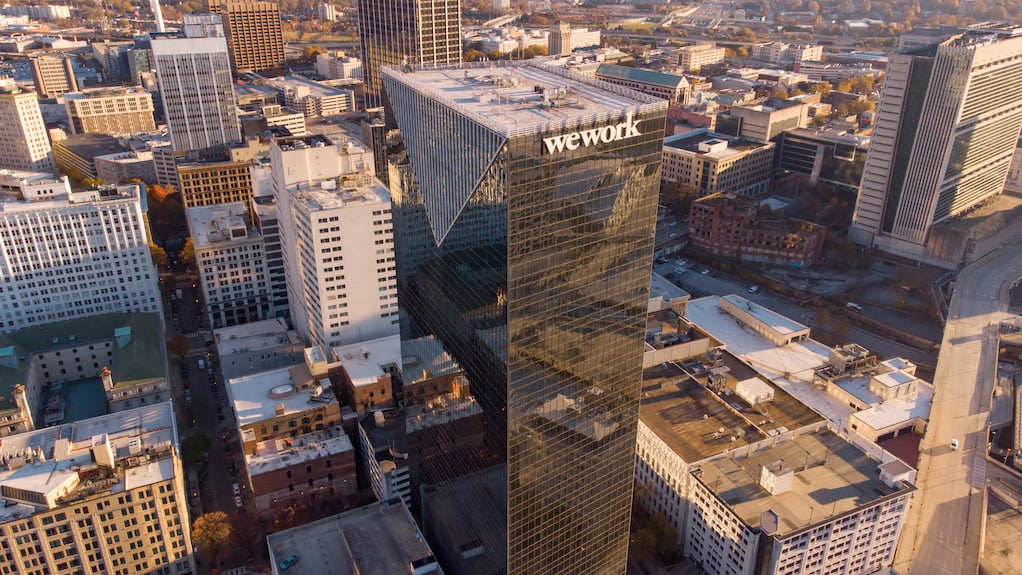Commercial landlords are about to be slammed by a wave of lease renegotiations, and it’s starting with WeWork.
Under new financial pressure and potential bankruptcy, the co-working pioneer is reexamining one of its top costs, real estate. Because on top of closing offices in under-performing locations, they found that there’s still savings to be unlocked in their existing leases. And whether or not their landlords take the bait in wide-scale renegotiations will affect the leverage that corporate tenants have everywhere.
Modern Tenants are Losing Money on Old Leases
Wework’s co-working business model couldn’t have come at a worse time. Since 2017, the company has lost $15 billion.
WeWork promised businesses the ability to be flexible and pause while the outlook of CRE adapts. Because of early corporate interest, it amassed massive amounts of office space in a pre-pandemic leasing environment. However, WeWork is facing the same problem as any other landlord: Most companies don’t want to take on office space right now - even if it's temporary.

Resounding low demand in commercial real estate has put office valuations in a tailspin as vacancy rates climb to never-before-seen levels in major metros. Now, the prime space it scooped up prior to 2020 is worth a fraction of what it was.
And the company has been forced to reckon with its business model as it plummets in profitability along with its office stock.
|
WeWork’s overly (and, in retrospect, foolishly) generous use of money to lock down locations early on means there is likely a very large gap between where rents are and where the company wants them to be.” -GlobeSt |
Last November the company announced it was to close 40 underutilized locations. To do so, they planned to pay $200M over 15 months to exit the leases on spaces it is giving up, hoping to generate cost savings estimated at $140M in EBITDA.
It’s moves to stop the hemorrhage of cashflow on underutilized properties highlights the same issue many corporate tenants are trying to solve. When corporate real estate is typically the second most significant cost, it comes under intense scrutiny when it’s time to slash expenses. Because of this, over half of the world’s largest businesses have planned to cut into their footprints. But this is an expensive solution.

Landlords aren’t always willing to terminate corporate leases. When they are, it comes at an extreme cost to the tenant. But what’s challenging right now is the amount of trouble commercial landlords are widely in. With major defaults on the horizon and CMBS loans coming due, they aren’t likely to let tenants off the hook that easy.
“In many areas, office landlords already face serious challenges in keeping space leased, battling vacancy rates, and needing to maintain rents for the leased parts of buildings that can sustain the business of the whole.” GlobeST
Now, more than ever, they are instead willing to work with tenants to keep them in their buildings. And this means renegotiating the terms and price of their leased space that have since been outdated rather than risk losing more business.
Why Lease Renegotiation is Possible
After closing offices have proved to not be a strong enough solution, WeWork announced that it now plans to renegotiate essentially all of its leases.
|
“WeWork has been negotiating lower rents for over three years — and has had some success doing so at a time when landlords are desperate to fill office towers that have been emptied by the work-from-home shift that started during the height of the pandemic.” -New York Times |
It’s moves to recover more stability highlight the power corporate tenants have right now. Even facing bankruptcy, WeWork has leverage to renegotiate nearly all of its leases. Because since CRE demand is pretty much at a record low, the value of corporate tenancy is at a premium.
WeWork is finding itself in the same position as a lot of major corporations, paying too much for space that has since been devalued. And on top of that, they are faced with compounding rent escalations negotiated before the market was tenant-favored coupled with expensive operating expenses.
CEO of WeWork, David Tolley, said “We are taking immediate action to permanently fix our inflexible and high-cost lease portfolio to achieve the sustainable operating model that we need to serve our members for many years to come.”
And the renegotiation strategies it's using to target its portfolio highlight even more opportunities for tenants.
Lease Negotiation Tactics for Corporate Tenants
If your company is looking to renegotiate its corporate leases, it’s time to take a page out of WeWork’s playbook.

One of the most effective tactics when negotiating with landlords is the length of your lease. WeWork is taking advantage of the fact that the average term remaining on the leases is 10 years and average occupancy in the locations being vacated is about 42%, according to GlobeSt.
This is part of the reason they are having success with renegotiation.
Rather than lose out on a ten-year commitment entirely, landlords are in a position to instead consider cutting charges to retain the business of their longstanding tenants.
Since demand is so low for office space, your landlord will likely do anything to keep you in their space for longer. This means that if you are willing to extend your term, they will likely be open to renegotiating. You can potentially reset your rent to market value, negotiate for better terms, or secure new concessions.
|
Are your current leases out of step with current market conditions? We can help. Click here to get started. |
This is a critical reminder for corporate tenants that landlords may be willing to work with you to renegotiate. Length of the lease is a key redeeming factor for landlords who are struggling with instability, and as a tenant, leveraging this is integral to achieving a mutually beneficial agreement.
WeWork’s analysis also highlights the fact that if not properly negotiated in an original lease, OpEx has the potential to spiral out of control. Unfortunately, this an issue experienced by many tenants and resetting the costs can only be achieved through renegotiation. Read more about how to ensure your OpEx benefits your budget.
Is Mass-Renegotiation on the Horizon?
How landlords react to these renegotiation requests will set a precedent for future opportunities. If a landlord is willing to work with a tenant for such wide-scale renegotiations, it substantiates the possibility that you can take the same hard looks and actions with your own portfolio.
|
“Giving in to serious demands for rent reductions from one tenant opens the door to others demanding equal consideration." -GlobeSt |
This ripple effect may lead to a more tenant-favorable market landscape, where landlords are increasingly flexible in their lease negotiations.
For tenants who have existing leases and wish to capitalize on this era of renegotiation, it's an excellent time to engage with their landlords. By presenting a well-reasoned case for lease adjustments, including rent reductions or other concessions, tenants can potentially secure more favorable terms. However, it's crucial to approach these negotiations strategically to ensure a win-win outcome for both parties.
Yet, the commercial real estate industry is in a watch-and-wait mode to see how this trend unfolds. As more tenants exercise their renegotiation options, the industry will closely observe the outcomes. This could set the stage for an environment where tenants have more leverage and opportunities to shape their lease agreements in their favor. In the mean time, there's never been a better opportunity to secure what your business needs from its CRE portfolio. Learn how to use this opportunity to find the best offices for the best prices on the market by taking the free course below.








